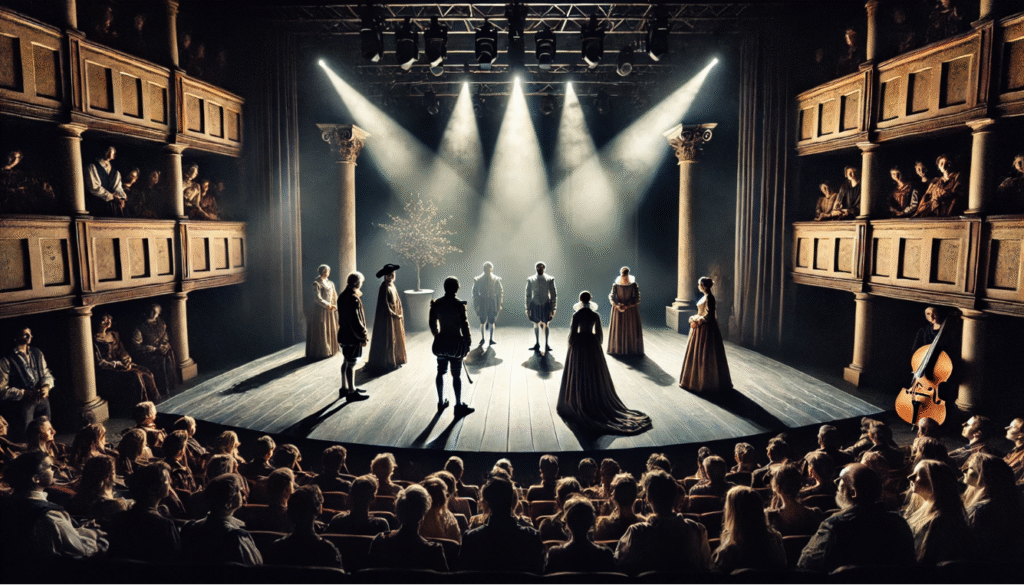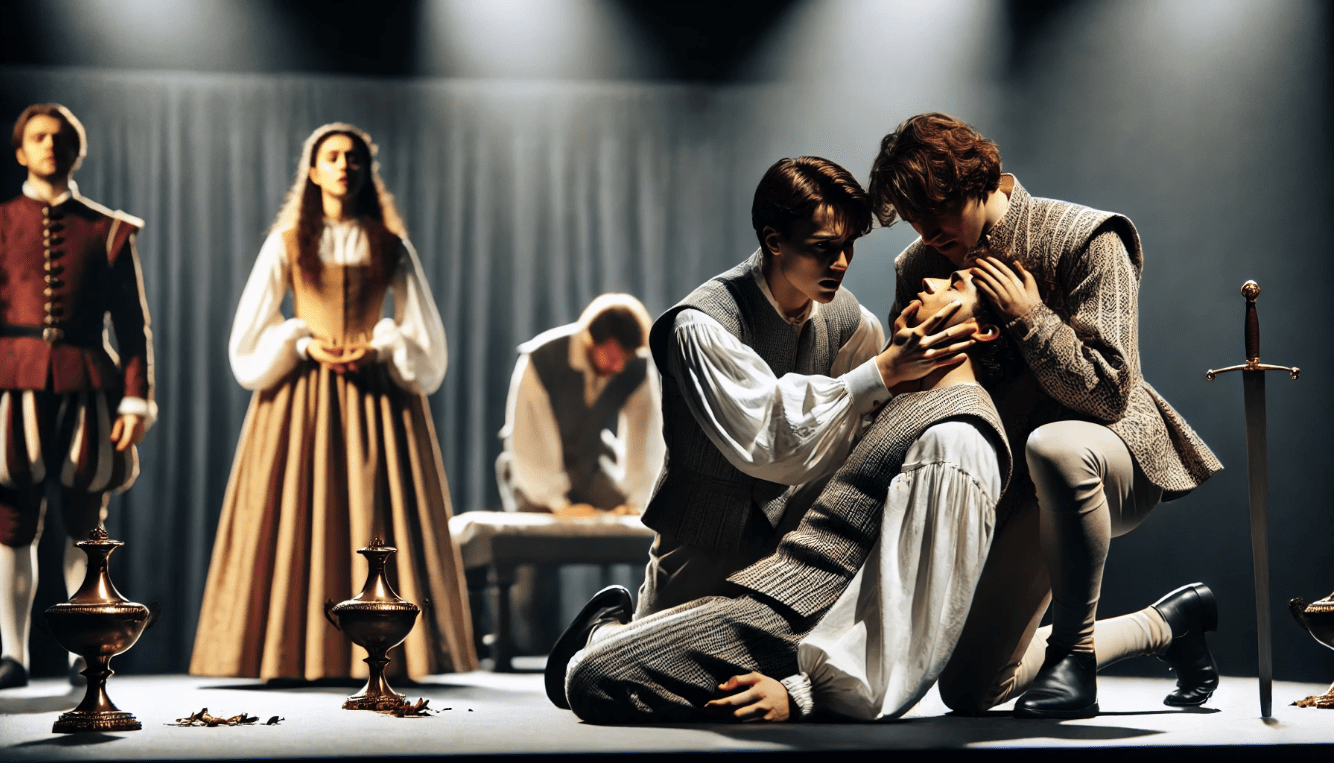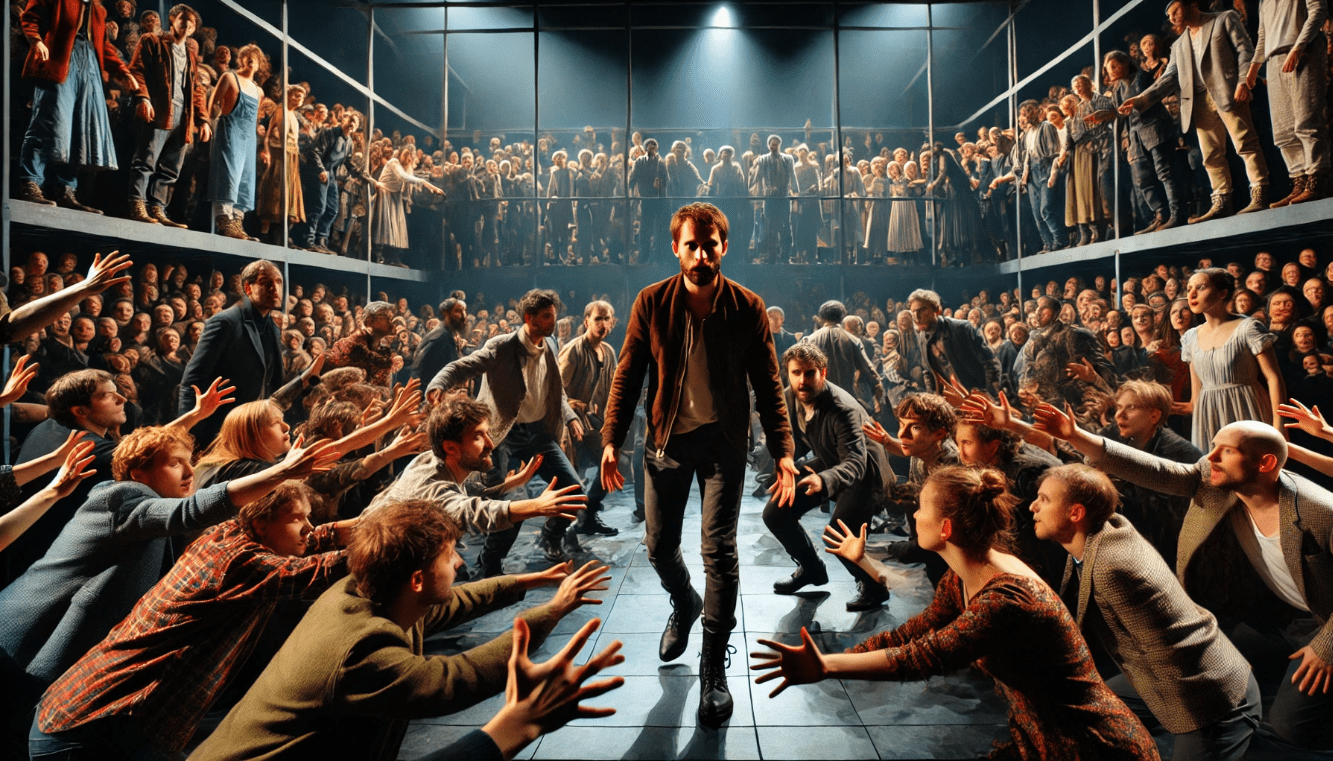
The Impact of Shakespeare on the Theatre Profession: How His Legacy Continues to Shape Modern Theatre Practices
Shakespeare’s influence on theatre is undeniable – but did you know his impact goes far beyond the stage? 🎭 Whether you’re an aspiring actor, playwright, or theatre enthusiast, understanding how the impact of Shakespeare on the theatre profession still shapes today’s performances can unlock new perspectives and techniques for your craft.
For centuries, Shakespeare’s plays have set the standard for storytelling, character development, and dramatic structure. But how exactly has his legacy continued to mold modern theatre practices? 🤔 From the way we write dialogue to how we direct performances, Shakespeare’s touch is everywhere – and it’s not just in traditional productions. His innovative approaches have laid the groundwork for contemporary adaptations, performances, and even modern films.
Table of Contents
Toggle1. Why Shakespeare’s Work Still Matters in Modern Theatre
Shakespeare’s influence on modern theatre is undeniable, and it’s not just about his famous plays or iconic quotes. His work continues to resonate because it taps into universal themes and emotions that still apply to our world today. Whether you’re in the audience or on stage, Shakespeare’s impact is something you experience firsthand. Let’s break down why his work still matters in modern theatre. 🎭

Timeless Themes and Universal Human Experience
One of the key reasons Shakespeare’s work endures is the way he explored complex, relatable human experiences. Themes of love, jealousy, ambition, betrayal, and identity continue to speak to modern audiences. These timeless emotions transcend cultural boundaries and remain just as relevant today as they were when Shakespeare wrote his plays.
Rich, Multi-Dimensional Characters
Shakespeare didn’t just write one-dimensional heroes or villains—his characters are layered and complex. Characters like Hamlet, Lady Macbeth, and Othello deal with inner turmoil, moral dilemmas, and emotional conflict, making them timeless and relatable to modern audiences.
Shakespeare’s Language: Still Powerful, Still Fresh
It’s easy to think of Shakespeare’s language as old-fashioned or difficult to understand, but in reality, his poetic style introduced a wealth of new words and expressions that we still use today. His mastery of rhythm and verse made his work not only entertaining but memorable.
Cultural Relevance
Shakespeare’s plays were not written just for the elite—they were for everyone. He wrote for people of all social classes, and his works continue to be reinterpreted for modern, diverse audiences. Adaptations of his plays often focus on making his stories accessible to new generations and cultures, whether through contemporary settings or cross-cultural interpretations.
2. Key Shakespearean Techniques That Have Shaped Modern Theatre

Shakespeare’s genius didn’t just lie in his storytelling but in the techniques he used to craft unforgettable plays. These techniques, some of which are still in use today, have shaped the way modern theatre is written, directed, and performed. Let’s explore some of these key techniques that continue to influence theatre professionals across the world. 🎭
Innovative Use of Language
Shakespeare was a master of language. He transformed English with his poetic verse and innovative use of words, coining many phrases we still use today, like “break the ice” and “wild-goose chase.”
Soliloquies: The Power of Inner Thought
One of Shakespeare’s standout techniques is the soliloquy—the dramatic monologue where characters speak their innermost thoughts aloud. Famous examples include Hamlet’s “To be or not to be” and Macbeth’s reflection on his ambition. This technique allows the audience to understand a character’s motivations, conflicts, and emotional turmoil, providing rich depth to the performance.
Complex, Multi-Dimensional Characters
Shakespeare didn’t just create “good guys” and “bad guys.” He gave us characters who were multi-faceted, full of contradictions, and driven by powerful motivations. Take Hamlet, for example—he’s indecisive yet determined, thoughtful yet impulsive. These complex characters challenge both actors and audiences to think critically about human nature.
Plot and Structure: The Art of Dramatic Tension
Shakespeare was a master at building dramatic tension. His plays often feature intricate subplots, twists, and moments of dramatic irony—where the audience knows something the characters don’t, which creates suspense. He was also brilliant at creating escalating stakes, pushing his characters into difficult situations that demand dramatic resolutions.
3. How Shakespeare Has Shaped Modern Theatre Practices
Shakespeare’s impact on modern theatre goes far beyond his iconic plays and characters. His methods, both in how stories are told and how they are performed, have influenced nearly every aspect of modern theatre. From directing to acting, his legacy still guides theatre professionals today. Let’s dive into some key ways his practices continue to shape the way we create and experience theatre. 🎬

Shakespeare’s Influence on Directing and Staging
One of the most significant ways Shakespeare shaped modern theatre is through his approach to staging and directing. His plays were often performed in a bare, open setting, allowing the action to flow across different areas of the stage. This flexibility encouraged directors to be creative in how they used space, ensuring the setting was as dynamic as the actors themselves.
The Rise of Immersive and Site-Specific Theatre
Shakespeare’s influence also paved the way for modern immersive and site-specific theatre. In Shakespeare’s time, audiences were often closely involved with the action, with plays performed in open-air theatres like The Globe, where the audience surrounded the actors. This sense of inclusion has inspired modern productions where the audience isn’t just passive but becomes part of the experience.
Acting Techniques: The Legacy of Shakespearean Training
Shakespeare’s influence on acting is perhaps the most obvious. His characters, full of emotional complexity and layered motives, require actors to go beyond just speaking lines. Shakespearean training emphasizes voice control, projection, and physicality, helping actors bring depth and authenticity to their roles. Many acting schools still use Shakespeare’s plays to hone actors’ skills.
Shakespeare’s Enduring Impact on Modern Playwriting
Shakespeare’s innovative approach to plot structure, character development, and dialogue has influenced countless playwrights. His ability to create intricate storylines with compelling conflicts and resolutions laid the groundwork for the dramatic structure we use in modern plays. His plays have also inspired writers to push boundaries, tackle social issues, and experiment with language.
4. The Legacy of Shakespeare in Contemporary Theatre Productions

Shakespeare’s legacy is alive and thriving in contemporary theatre, from new interpretations of his plays to completely modern adaptations that continue to shape the way we think about theatre today. His work is no longer confined to traditional productions but has inspired a wide range of creative reimaginings across all types of media. Let’s explore how Shakespeare’s influence is reflected in the vibrant world of modern theatre. 🎬
Shakespeare in Modern Adaptations
Shakespeare’s work remains a goldmine for modern adaptation. Whether through movies, musicals, or new theatrical interpretations, his stories have been reworked to fit today’s social, cultural, and political contexts. For example, films like The Lion King (inspired by Hamlet) and 10 Things I Hate About You (a modern take on The Taming of the Shrew) demonstrate how his themes are adaptable across different genres and settings.
Shakespeare in International Theatre
One of the most exciting aspects of Shakespeare’s legacy is how his works have crossed cultural boundaries. Directors and playwrights from around the world continue to reinterpret his plays in ways that reflect their own traditions and social contexts. From Bollywood adaptations of Macbeth to African renditions of The Tempest, Shakespeare’s work is constantly being reimagined to speak to diverse audiences.
Shakespeare Festivals and Global Reach
Shakespeare festivals continue to attract large audiences, both in the UK and internationally. Festivals like the Stratford Festival in Canada and the Globe Theatre’s productions in London keep his plays at the forefront of modern theatre, allowing audiences to experience both traditional and innovative performances. These festivals often feature modern adaptations, offering new takes on classic works while honoring the original text.
Shakespeare and Immersive Theatre Experiences
A growing trend in modern theatre is the rise of immersive productions, where audiences are not merely observers but active participants in the performance. This technique, inspired by Shakespeare’s own interactive plays, is being used to create more engaging and dynamic experiences. Imagine a Macbeth production where the audience is part of the Scottish court or a Romeo and Juliet performance that takes place in a modern-day Verona.
5. How Theatre Professionals Can Harness Shakespeare’s Legacy
Shakespeare’s legacy is a powerful resource for theatre professionals, whether you’re writing, directing, or performing. His techniques, themes, and storytelling methods can help elevate your work to new heights. Here’s how you can harness Shakespeare’s influence to enhance your theatre practice and create compelling, dynamic performances. 🎭

1. Use Shakespearean Themes to Deepen Your Writing
Shakespeare’s plays tackle universal themes—love, power, revenge, identity—that resonate with audiences across time and culture. These themes can serve as a rich foundation for your own writing, allowing you to explore timeless human struggles in your work.
2. Focus on Character Development
Shakespeare’s characters are some of the most complex in all of theatre. Whether it’s Hamlet’s indecisiveness or Lady Macbeth’s ambition, Shakespeare knew how to create multi-dimensional figures that remain relevant today.
3. Use Soliloquies to Reveal Inner Conflict
Soliloquies are one of Shakespeare’s signature techniques, giving characters a chance to express their innermost thoughts and conflicts directly to the audience. This tool is incredibly powerful for revealing a character’s emotional journey.
4. Embrace Innovative Staging and Directing Techniques
Shakespeare’s plays were often staged with minimal sets, relying on the actors and their movements to bring the story to life. This approach encourages creativity in directing, where the focus is on the actors’ performances and how they interact with the space around them.
5. Experiment with Modern Adaptations
Shakespeare’s works have been successfully adapted into countless modern formats, from films to musicals to experimental theatre. You can take his stories and characters and reimagine them in new ways, bringing them into the present day while retaining their timeless appeal.
Shakespeare’s profound impact on the theatre profession is undeniable and continues to resonate in every corner of the industry. From his timeless themes and intricate characters to his revolutionary approaches to language, staging, and performance, Shakespeare has shaped the very foundation of modern theatre. Whether you’re a writer, director, actor, or producer, understanding his techniques and legacy can elevate your craft, offering new ways to tell powerful, engaging stories. 🎭
As we’ve explored, his influence isn’t just confined to traditional productions. Shakespeare’s work has inspired modern adaptations, immersive experiences, and cross-cultural interpretations that continue to captivate diverse audiences worldwide. By harnessing his legacy, theatre professionals can create dynamic, emotionally rich performances that connect with audiences of all backgrounds.
Frequently Asked Questions (FAQs)
1. How has Shakespeare influenced modern theatre?
Shakespeare’s influence on modern theatre is immense. His innovative use of language, character development, and storytelling techniques, such as soliloquies and dramatic irony, have shaped the way we write, direct, and perform plays today. His themes, such as love, betrayal, and ambition, remain timeless and continue to resonate with modern audiences.
2. Why is Shakespeare still relevant in today’s theatre?
Shakespeare’s works explore universal human emotions and complex characters that transcend time and culture. His ability to capture the human experience in a way that is relatable to contemporary issues ensures his continued relevance in modern theatre, both in adaptations and original works.
3. What are some of Shakespeare's key contributions to modern theatre?
Shakespeare’s key contributions include his mastery of language, complex character development, and dramatic structure. He introduced the use of soliloquies to express inner thoughts, employed intricate plots and subplots, and developed multi-dimensional characters, all of which continue to shape how stories are told on stage today.
4. How do modern theatre productions adapt Shakespeare's works?
Modern theatre productions adapt Shakespeare’s plays by reimagining them in contemporary settings or using modern language, while retaining the core themes and characters. These adaptations make Shakespeare’s stories more relatable to today’s audiences, often addressing current social and political issues through his timeless themes.
5. Can Shakespeare’s writing techniques be applied in contemporary plays?
Yes, Shakespeare’s writing techniques—such as rich, poetic dialogue, complex characters, and layered plots—can be applied in contemporary plays. Writers can use his approach to create more compelling narratives and dynamic characters that engage audiences on a deeper emotional level.
6. Why do actors still study Shakespeare's plays?
Actors study Shakespeare’s plays because his works offer a unique challenge in mastering language, emotional depth, and character complexity. Performing Shakespeare helps actors develop skills in voice control, emotional range, and physicality, which can be applied to any role in modern theatre.
7. What impact did Shakespeare have on theatre production techniques?
Shakespeare influenced theatre production by focusing on simplicity in set design, where the action and actors were the primary focus. His plays also encouraged dynamic use of stage space, which inspired modern directors to explore creative staging and non-traditional settings in contemporary productions.
8. How can theatre professionals apply Shakespeare’s legacy today?
Theatre professionals can apply Shakespeare’s legacy by focusing on character development, using his techniques for emotional depth, and experimenting with modern adaptations. Directors can innovate staging, actors can deepen their craft by mastering Shakespeare’s language, and playwrights can draw from his themes to create timeless stories that resonate with today’s audience.
